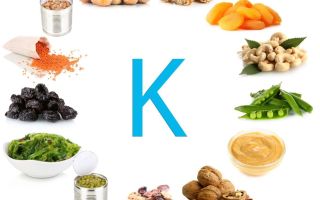Content
For adequate growth and development of a child, a whole range of nutrients, including vitamins and minerals, are needed. The lack of one element often leads to a disruption of the entire system, which is manifested by characteristic symptoms. Recommended vitamin complexes for children often also include potassium, which is involved in many vital processes.
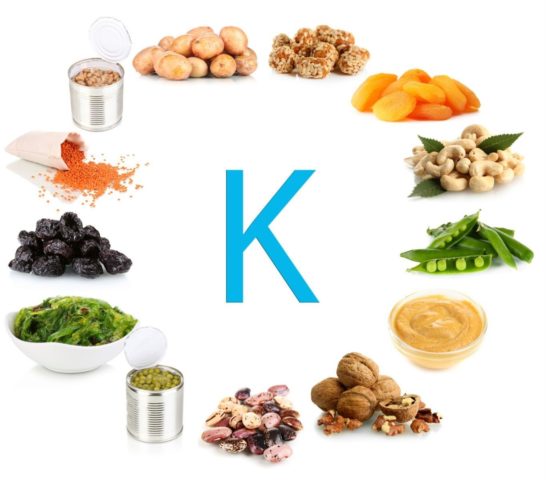
Potassium requirement in children
Potassium is practically not found in nature in its pure form. The substance enters the human body in the form of salts (compounds with chlorine and sodium). Taking dietary supplements and vitamins is not the only way to fill a deficiency. Potassium is found in food.
Potassium in a child's body performs the following functions:
- participation in the development of the nervous system;
- strengthening muscles;
- normalization of the functioning of the brain and cardiovascular system;
- oxygen supply;
- activation of enzymatic systems;
- removal of excess fluid;
- prevention of sodium salt deposition;
- maintenance of renal excretory function.
Causes of potassium deficiency in children
A decrease in potassium levels in children may be due to the following factors:
- unbalanced diet;
- violation of metabolic processes;
- transfer of molecules containing the substance into muscle tissue from blood cells.
Hypokalemia or lack of potassium results from:
- insufficient assimilation of the substance by the child's body;
- over-highlighting an element.
Often, a decrease in potassium concentration is associated with an excess intake of sodium into the body. The risk of hypokalemia is increased in children who consume large quantities of canned, salted and smoked foods.
Potassium excretion increases with intense physical exertion, which are accompanied by increased sweating. In such cases, experts recommend including dairy products in the diet, taking dietary supplements and vitamins.
Symptoms of a lack of potassium in a child
Potassium deficiency is dangerous by disruption of the functioning of body systems and internal organs:
- muscular;
- nervous;
- cardiovascular;
- liver;
- kidney;
- intestines.
Against the background of a lack of potassium, the following manifestations may occur:
- increased pressure;
- constant fatigue, drowsiness;
- muscle pain;
- causeless tearfulness, irritability, anxiety;
- hair loss.
Potassium is essential for the growth of a child's body. Its deficiency causes a decrease in immunity, rickets, a violation of the blood clotting process. With a lack of an element, it is important to find the cause of the pathological condition.
Daily requirement for potassium in children
A child needs 600 mg of potassium per day. However, this indicator is not certain. The dosage calculation is due to the following factors:
- features of climatic conditions (with sweat a significant amount of substance is released);
- level of physical activity;
- history of the child;
- age.
The daily intake of potassium in the body of children varies:
- 400-700 mg - 0-1 year;
- 3000-3800 mg - 1-8 years;
- 4500-4700 mg - 8-18 years.
Foods high in potassium
Potassium is found in large quantities in plant foods. That is why the child's diet should include a sufficient amount of fruits and vegetables:
- potatoes;
- legumes;
- spinach;
- broccoli;
- White cabbage;
- dried apricots;
- kiwi;
- melon;
- grapes.
A baby's heart needs potassium-rich foods:
- liver;
- a fish;
- milk products;
- mushrooms;
- natural chocolate.
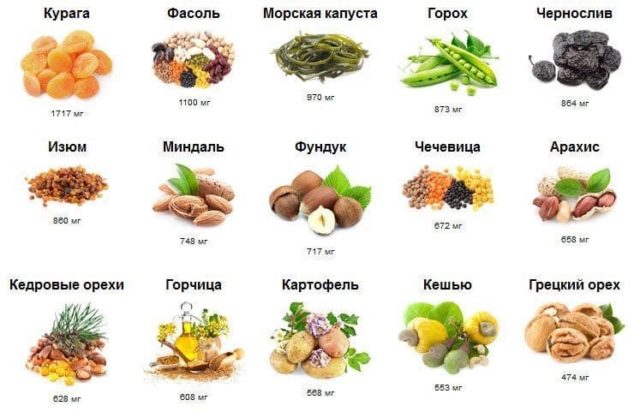
The level of potassium in the blood in children depends on the concentration of pyridoxine (vitamin B6). The component is contained in the following products:
- meat (chicken, beef, turkey);
- fish and seafood (salmon, shrimp, tuna);
- broccoli, Brussels sprouts, white cabbage, cauliflower, seaweed;
- carrots, zucchini, eggplant, beets, garlic, leeks, lentils, green peas, beans;
- watermelon, melon, bananas, avocado, figs.
Potassium preparations for children
Dietary supplements with potassium for children can have different dosage forms:
- Tablets... The product is not suitable for long-term use due to the irritating effect on the mucous membranes of the digestive system.
- Capsules... They are more digestible than tablets. However, their use also adversely affects the intestinal and gastric mucosa.
- Solutions. The dosage form can be used in combination with water or juice. Its advantage is its high efficiency and safety for the digestive tract.
- Soluble tablets or powder... There are difficulties in dosing and administration.
When choosing a drug, you need to focus on the concentration of the active substance, bioavailability, and other components. To increase the effectiveness of potassium, dietary supplements should include vitamin B6. In parallel with the supplement, you can take Magnerot.
Potassium in complexes can be represented by varieties indicated by increasing digestibility:
- carbonate;
- gluconate;
- orotat;
- citrate;
- aspartate;
- aspartate;
- chloride;
- chelatin.
With a lack of potassium in the body in children, which is accompanied by characteristic symptoms, a specialist may recommend taking the following drugs:
- Potassium Gluconate (21st Century)... The package contains 110 tablets. Dosage involves taking 1 tablet per day (with meals). The drug is prescribed for adults and children over 14 years of age. The disadvantages of the complex include low concentration of the active substance and efficiency.
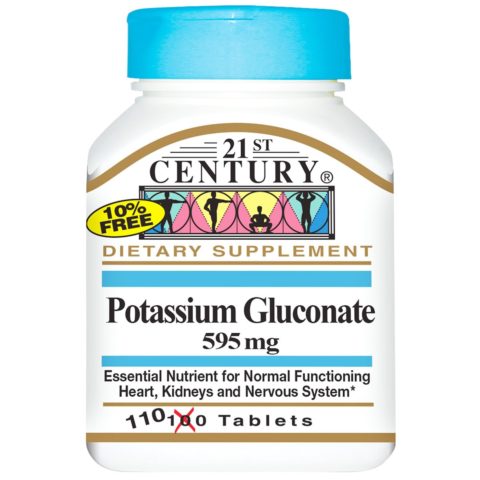
- Potassium Chloride (Now Foods)... BAA is produced in powder form (227 g). One package contains 365 mg of active ingredient. The complex is enriched with magnesium. The drug is effective and economical to use. However, this form is inconvenient to dose.
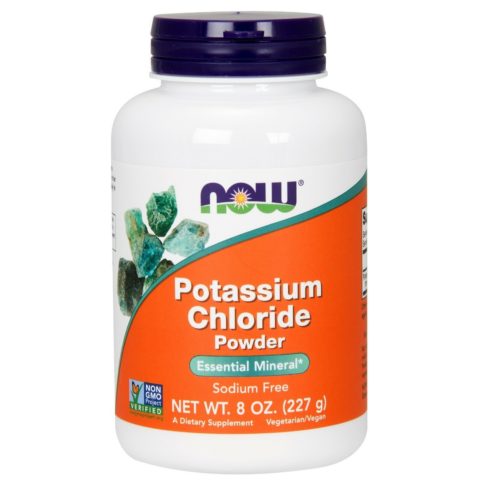
- Potassium complex (Nature's way)... The package contains 100 capsules. The active substance is potassium citrate. The dosage is 1 capsule per day. This food supplement does not contain flavors and sugar. The drug eliminates muscle pain and cramps. During use, pain in the stomach area may occur.
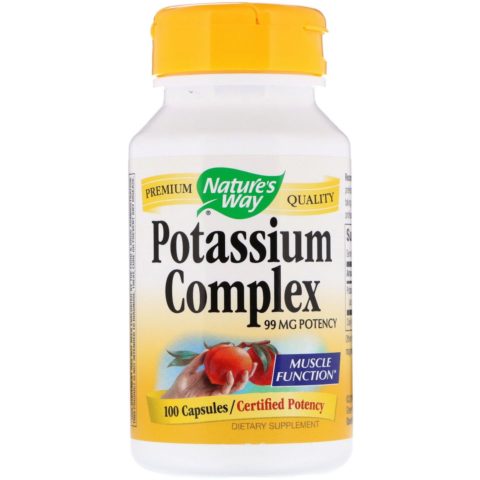
- Potassium (Solgar)... Each package contains 20 tablets (dosage - 1 piece per day). Supplement supports electrolyte balance and health of muscles and nervous system. The product does not include harmful components and is highly effective.
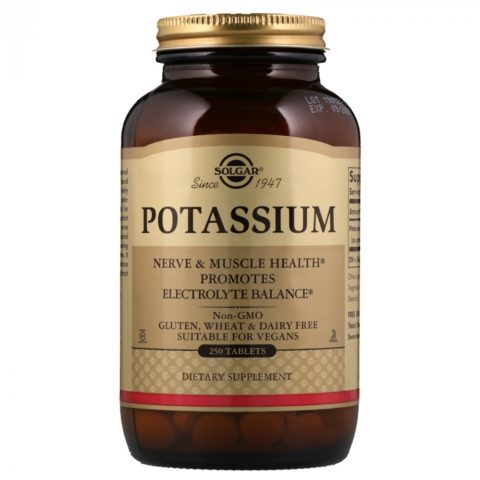
Potassium can be prescribed for children under one year old.In this case, the appropriate dosage and form of the drug is selected.
When buying dietary supplements, you should carefully study the composition and dose of the active ingredient. Do not purchase a product with fragrances. It is desirable that the dietary supplement contains magnesium necessary for the functioning of the nervous system and heart.
With a lack of potassium, the doctor often prescribes vitamin complexes, including:
- copper;
- zinc;
- magnesium;
- boron;
- vitamin D.
These components contribute to the retention of potassium in the child's body.
Contraindications and overdose
Potassium preparations are not prescribed in the following cases:
- gastritis or ulcer;
- dehydration;
- acidosis;
- heart block (atrioventricular).
Dietary supplements are not used in conjunction with the following drugs:
- Amiloride;
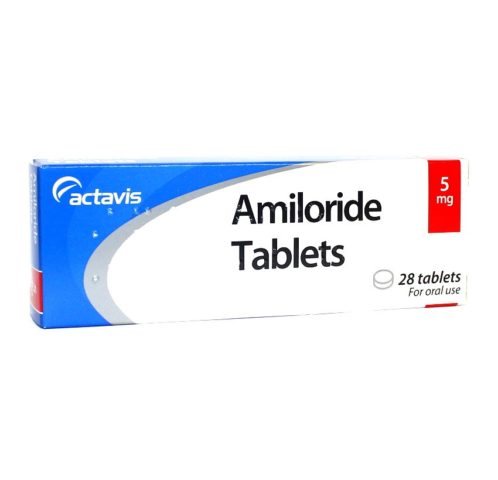
- Triampura.
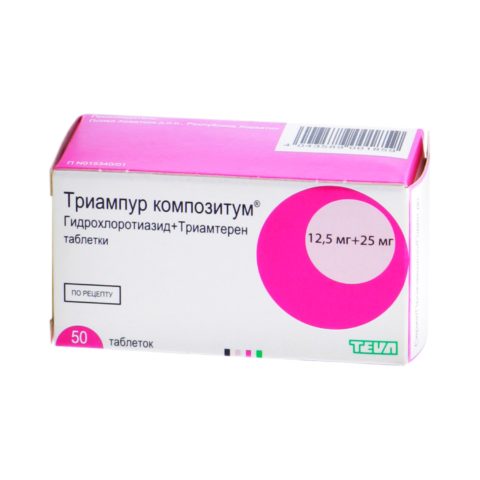
If the child's blood potassium is elevated, an overdose must be excluded. In this case, the following symptoms occur:
- arrhythmia;
- decrease in pressure;
- disorientation in space;
- digestive disorders;
- dizziness.
Conclusion
Among the vitamins and minerals recommended for children, potassium is of particular importance. The substance supports the health of the nervous system, musculoskeletal system, heart and blood vessels.

